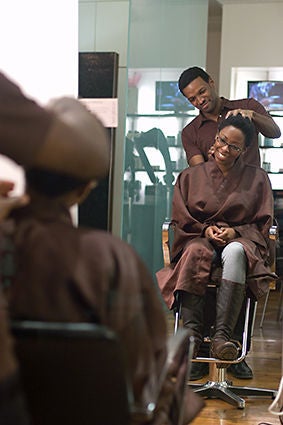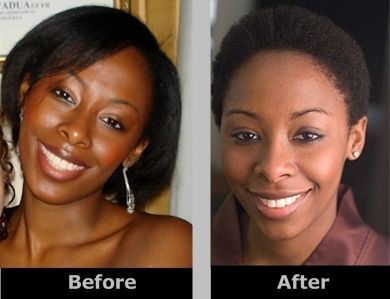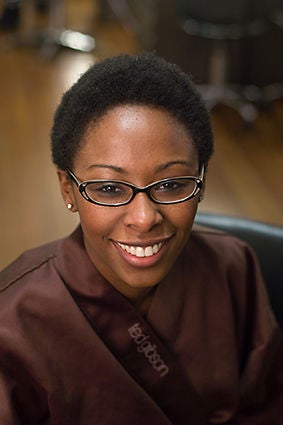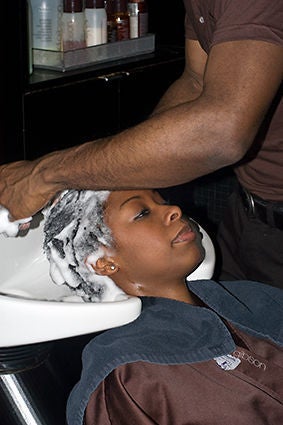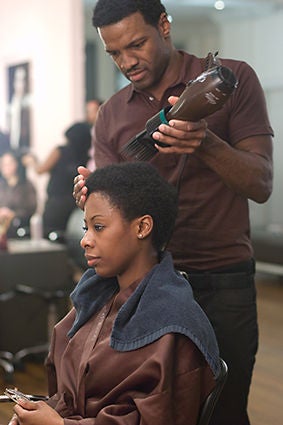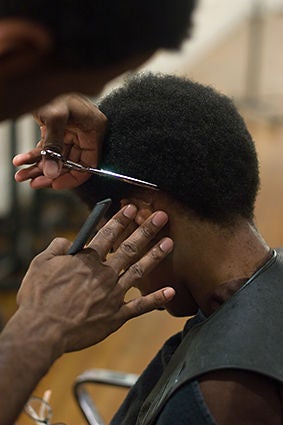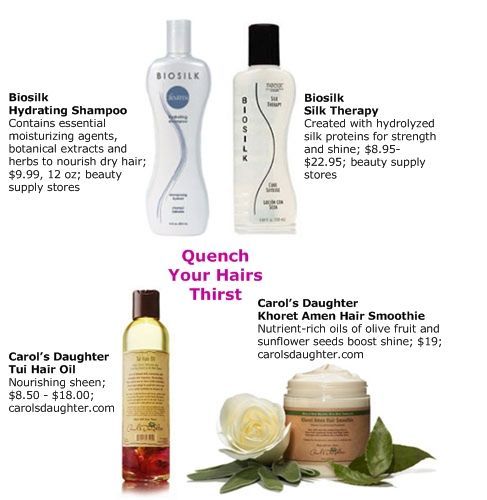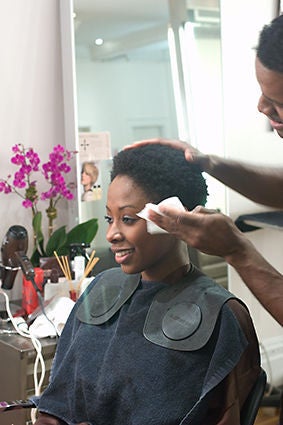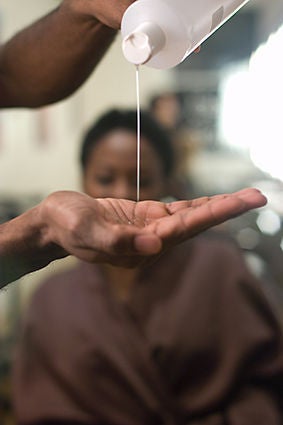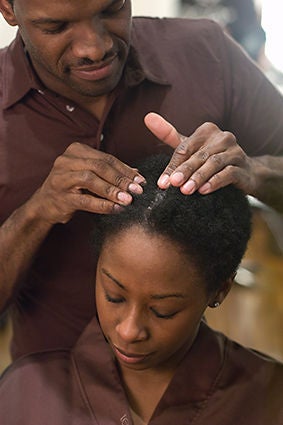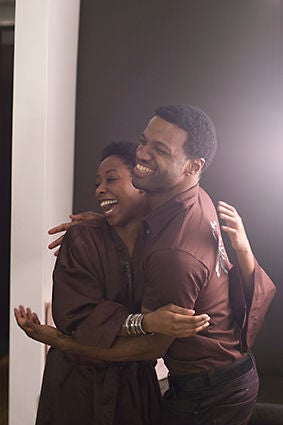A low-maintenance type of sister, Miriam Agwai has sported braids, relaxed her tresses, and ultimately got a root awakening when she decided to go chemical- and extensions-free. The New York film student enlisted the help of celebrity stylist Eugene Smith from the Ted Gibson Salon New York, who took her back to her natural locks. ESSENCE.com chronicles Agwai’s switch and explores how she maintains healthy hair.
As told to Qianna Smith
“I did a documentary for a class last year called ‘Hair Like Me.’ In a lot of ways it’s my hair journey as told through the experiences and opinions of the women I interviewed," says Miriam Agwai. “The women I encountered—from long dreads to relaxed to natural—all had gorgeous hair styles and they chose those styles because that’s how they wanted to wear their hair. They weren’t trying to be anyone else but themselves.”
“Don’t get me wrong: I loved rocking braids and relaxed hair, but deep down, I knew that wasn’t really me. I wanted to go natural: no extensions, no relaxers. I wanted to be hassle-free and my shorter natural do is much more in keeping with who I am.”
“Shampoo hair once then scrub your scalp and rinse completely and shampoo again to really make sure the hair is clean. The amount of lather you get will determine how clean your hair is,” says celeb stylist Eugene Smith on the importance of washing hair thoroughly to remove unwanted buildup such as dirt, skin particles, dandruff and environment pollutants.
“There were loads of times relaxed hair seemed way too high maintenance. I’m a film student and as much as I liked my relaxed do, I hated fussing over it on shoots. I just wanted to focus on work," confesses Agwai. "I’m a wee bit of a perfectionist, and my hair grows pretty fast, so once my roots started to show, I’d get paranoid and start thinking, Oh my goodness, I look horrible! And as much as I loved my hairdresser, I was tired of getting my hair relaxed every six weeks or so.”
“The hair grows a half inch on average per month, so if your stylist is cutting an inch or more every 6 to 8 weeks that will explain why your hair is not growing. Unless you’re having some type of breakage issue your stylist should just be trimming and cleaning your ends no more than a half to quarter of an inch,” says Smith.
The key to a successful salon experience for African-American women depends upon the ability to communicate with your stylists. A new study, Mane Attraction: Salon Experience Survey by Design Essentials, finds the most important factor in trusting a stylist for 41 percent of African-American women is that their stylist helps them keep their hair healthy.
“I don’t recommend conditioning natural hair; instead of conditioner, add oils," suggests Smith. "Conditioner is not as beneficial to natural hair because conditioner contains a lot of waxy type substances that can cover and clog the hair cuticle, preventing it from receiving moisture. Oil goes straight into the cuticle and nourishes the strands.”
If your natural hair needs additional conditioning, try using Hair Treatment Conditioner by Earth Science, $5.20, evitamins.com. Pour a small amount of product into the palm of your hand, then apply to hair. Leave in for two minutes, then rinse.
Smith pays close attention to moisturizing Agwai’s scalp. “The biggest problem women who wear their hair natural have is lack of naturally producing oils. You want to use something that will replace those oils," says the Ted Gibson Salon stylist. "It takes natural oils longer to travel down a course strand of hair than it does a relaxed strand of hair.” Try using Kera Care Essential Oils ($13.99-$25.99, beauty supply stores).
“If you want to go natural, do it because that’s what you really, really want to do,” advises Agwai. "It doesn’t sound like much, but I’m now loving my hair because I was 100 percent sure that’s what I wanted to do. Also, book a consultation with a stylist who knows what they’re doing. I found the Ted Gibson Salon while browsing through an ESSENCE.com hair gallery and I have absolutely no regrets.”
